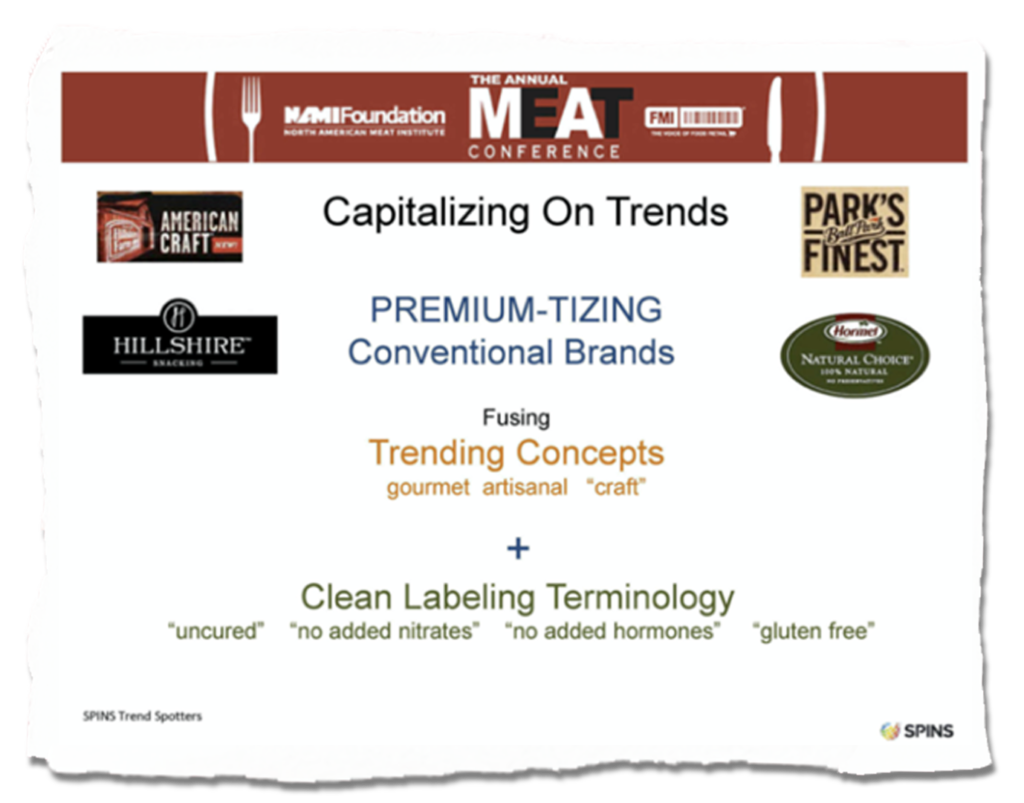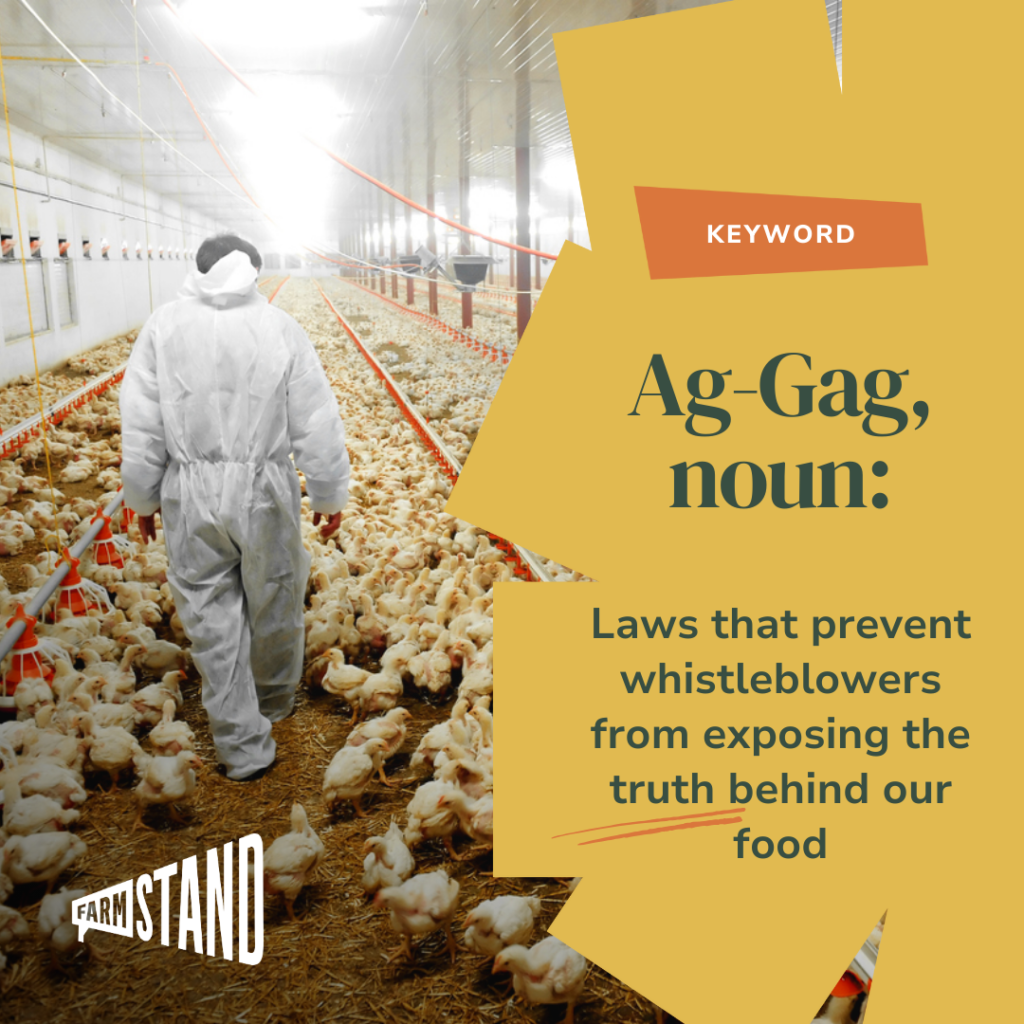Transparency is essential to a just food system. Knowing how our food is produced and how the workers who uphold our food system are treated helps ensure fairness and accountability.

Consumer Rights & Corporate Accountability
The food industry knows this, and intentionally deceives the public for its own benefit. Agribusinesses paint a false picture about how food is grown and processed. The industry prevents whistleblowers from exposing the truth of how the food system harms workers, communities, and the environment. Meanwhile, the government aids and abets corporate abuse, and obscures the extent to which it props up the industry.
The structures that make the dominant food system possible are so entrenched that we cannot depend on consumer choice alone to provoke change. Our roles as workers, advocates, and community members offer other effective avenues we can take to organize for a just food system – but corporate secrecy and disinformation make it hard to build power. Through movement-oriented litigation, FarmSTAND protects the public’s right to know the truth behind our food in order to hold corporations and the government accountable.
Exposing Corporate Lies
Consumers have a right to know how their food is produced, and trends show that consumers want to purchase food that’s produced in ways that are ethical, ecologically sound, and good for them. The food industry – and meat corporations in particular – exploit these desires by portraying their products as having been raised humanely and processed by workers treated with dignity. Such false claims deceive consumers and prevent the public from demanding better.

Exhibit 37 from our Hormel Deep Dive.
Hormel Foods takes advantage of consumer demand for premium products through its “Natural Choice®” line of products that it has advertised as “100% natural,” “all-natural,” and “better-for-you.” These claims were at least in part based on research suggesting that shoppers assume “natural” foods have certain qualities, like being raised humanely, or not having antibiotics or other additives. “Natural Choice®” products did not bear such qualities, though – the meat destined for Hormel’s natural line is the same exact stuff in its conventional products like SPAM.
With the Animal Legal Defense Fund, we sued Hormel for repeating these claims in its advertising campaigns for “Natural Choice” products. Through our lawsuit, we uncovered documents showing that Hormel’s “natural” products come from animals raised in factory farms and raised with additives, hormones, and antibiotics. Those documents are available for use by the press, attorneys, advocates, and the public in our deep dive.

Our lawsuit with Food & Water Watch alleges that Smithfield repeatedly lied to consumers throughout the pandemic so that it could continue exploiting and endangering workers and protect its bottom line. In addition to lying about working conditions, Smithfield stoked fears of a meat shortage, while increasing meat exports and maintaining record-level storage freezers full of meat.
Spotlight
Check out our most recent Deep Dive into Hormel’s “Natural Choice” product line and the revealing documents we acquired through litigation.
Protecting Whistleblowers
We need to understand how our food system operates in order to change it. Since the ‘90s, Big Ag and its political allies have lobbied to pass “ag-gag” laws in states across the country that penalize whistleblowers who shed light on industry abuses. The resources the industry puts into getting ag-gag laws passed underscores how important skirting accountability is to their bottom line, and how much of a threat whistleblowers pose to their dominance.
FarmSTAND engages in litigation to strike down these ag-gag laws and protect the rights of advocates who expose industry harms. With nine lawsuits spanning seven states, we’re fighting against the targeting of whistleblowers and union organizers to expose human rights and animal abuses for the benefit of consumers, workers, and rural communities alike.
Holding Government Accountable
The U.S. government uses public money and corporate-friendly policies to prop up factory farming – a system that hurts the communities, workers, and consumers to whom the government should be accountable. Through litigation, FarmSTAND reveals – and in some cases stops – instances in which the government enables or promotes corporate dominance in our food system.
The government often fails to track and trace important data about the food system. But when it does, it rarely makes the data public. Alongside a group of farm advocacy organizations, we requested information from the Farm Service Agency regarding federal subsidies to farms under the Freedom of Information Act (FOIA) to support our movement work. FOIA requires federal agencies to make requested documents and data available to the public. However, the documents FSA produced were either delayed or heavily redacted, hiding just how much government funding went to propping up factory farms. In coalition with animal, environmental, and food advocacy organizations, we sued the FSA for its pattern and practice of withholding vital information from the public.
Federal laws financially support agribusinesses in ways that confuse consumers and shape demand for meat. Industry-specific “checkoff programs” are government-sanctioned slush funds that get used for marketing commodities, like beef, pork, milk, eggs, and even Christmas trees. Because such programs fail to distinguish products that are raised with high environmental or welfare standards, they often undercut producers who are trying to do the right thing. As a result, both consumer perception and consumer choice become warped to favor industry over smaller, independent producers. Representing a group of independent farmers and ranchers, we sued the USDA – twice – for the way the beef checkoff program often markets beef in ways that promote conventional beef, while giving short shrift to farmers and ranchers who raise animals in ways that are aligned with environmental and animal welfare concerns.
